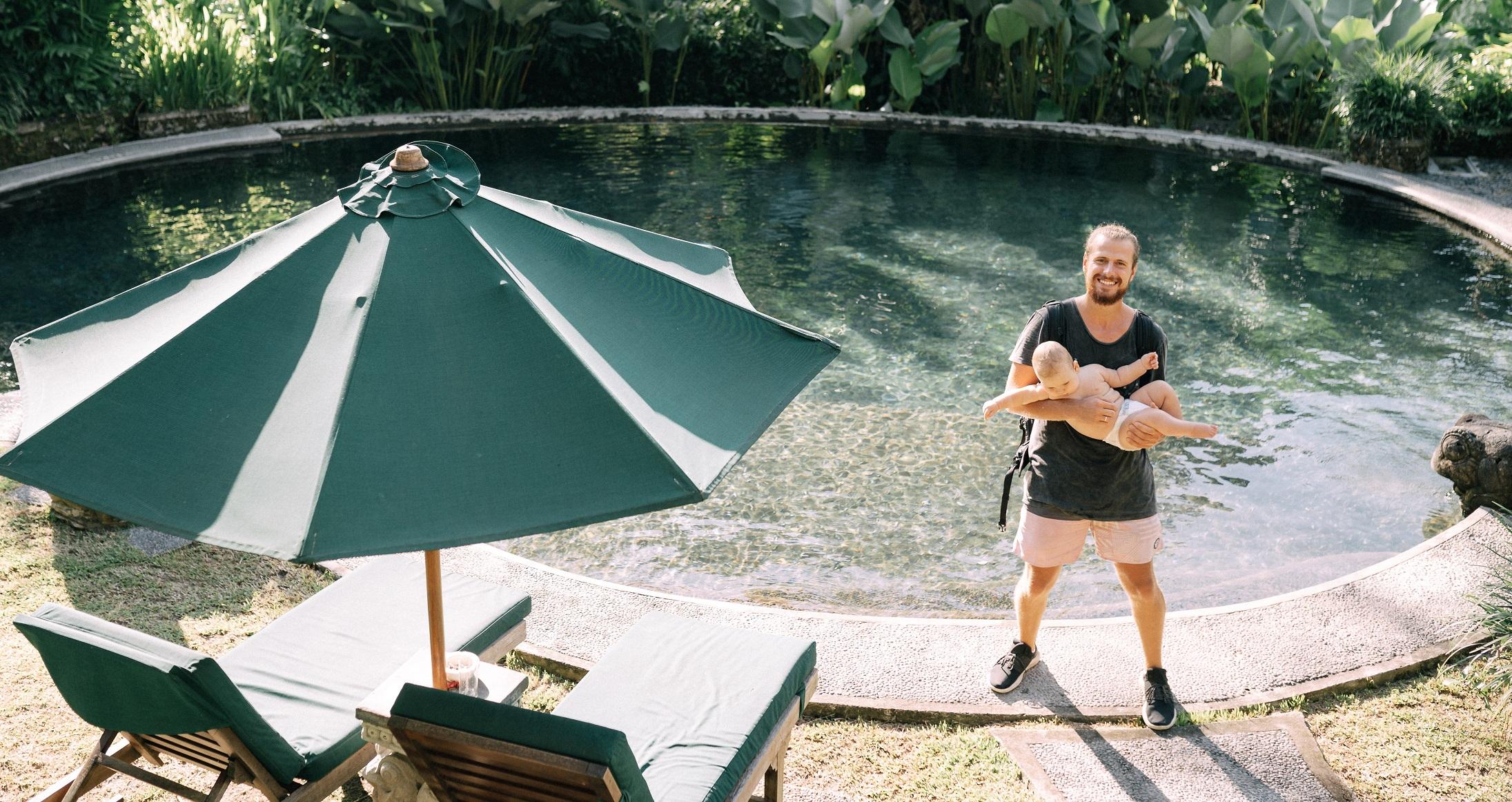


Can Babies Go Underwater?
29 May 2023
Can babies go underwater? Well, the simple answer is yes.
However, before jumping into the swimming pool with your little one, there are a few essential points to consider.
There is actually a considerable amount of science behind the idea that newborn babies can swim, and some important information that is helpful to know before, literally, taking the plunge!
Can Babies Swim Naturally?
Firstly, you might wonder why a baby doesn’t drown during a water birth. Perhaps you’ve experienced a water birth first-hand.
Surely if a baby can be born underwater, it means it can swim from birth, right?
Actually, no, it doesn’t. Genetically, a baby’s first breath is triggered by inhaling air, not water. Until its head emerges from the water into the air, the baby simply moves from a fluid-filled womb into a bath of water; and is then brought swiftly to the surface, where they take their first breath.
Reflexes
Secondly, a human baby is born with two reflexes that automatically kick in when they come into contact with water.
● The Dive Reflex, present at birth in all mammals, triggers a baby’s trachea to close off automatically and their heart rate to slow. As a result, they immediately hold their breath when their face is immersed in water.
Like all of us, however, there are limits to how long a baby can hold its breath underwater before they start to take water into the lungs.
● The Swimming Reflex means that a baby's arms and legs will automatically move in a swimming motion when placed tummy-side down in the water. Realistically, however, until about four months old, a baby does not have the strength or ability to move its body through the water.
Both reflexes will disappear by the time your baby is about six months old.
Temperature
Finally, the shiver reflex, the involuntary muscle spasms which help our bodies generate heat when we are cold, doesn’t develop in babies until they are at least six months old.
Furthermore, they cannot regulate their body temperature efficiently until they are at least eighteen months old, sometimes older.
With this in mind, check the water temperature before taking a dip in the local swimming pool. For babies under six months, the water needs to be heated to about 32°C (92°F).
Many leisure centres now have smaller pools that cater specifically to babies' and toddlers' needs in that they are warmer and shallower than the large public swimming areas.
Most discussion and debate - and there has been a lot of it - around whether a baby can go underwater has revolved around the above considerations.
Conclusion
Yes, your baby can go underwater, but there are limits to their tolerance. Babies can get too cold or too hot. Babies get tired. In the worst-case scenario, babies can drown.
Some babies will find the whole experience unpleasant, while others will take to the water like a duck!
The safest way to introduce your baby to water, swimming and going underwater is to enrol them in an accredited, age-appropriate swimming class as early as possible. That way, you can work with their early reflexes in a safe, supervised, nurturing environment and move on to developing their swimming skills and going underwater when they are ready.
